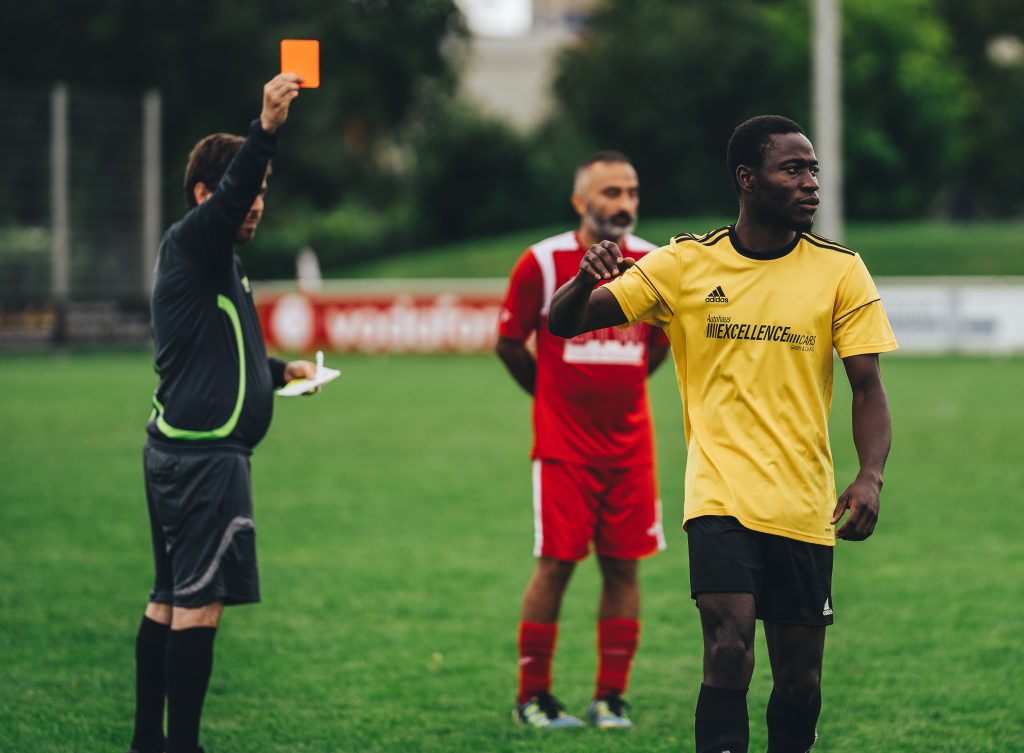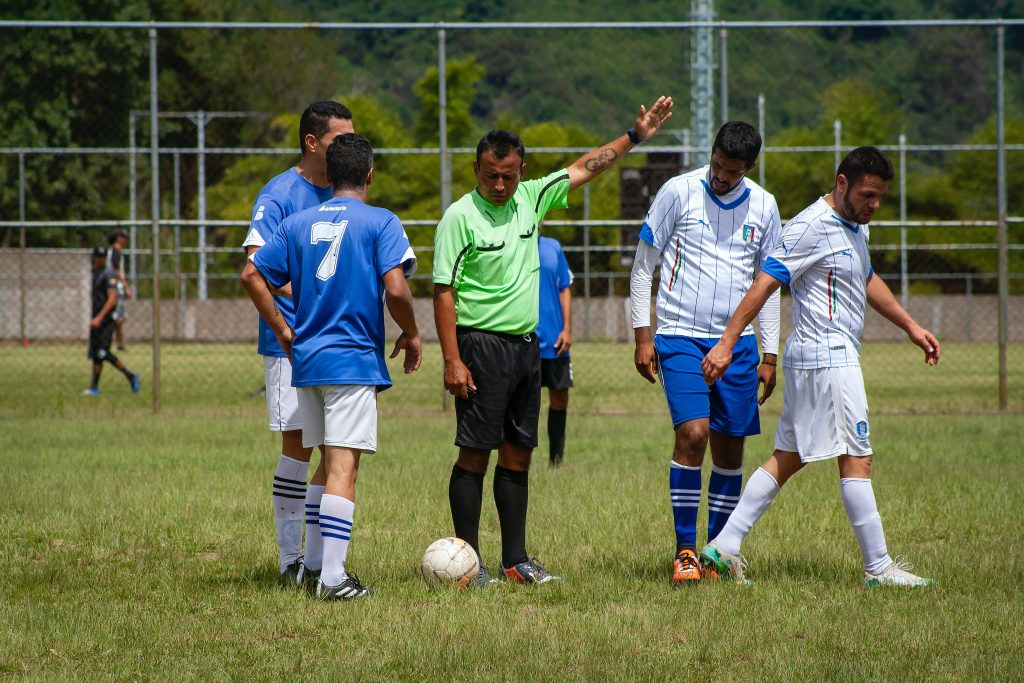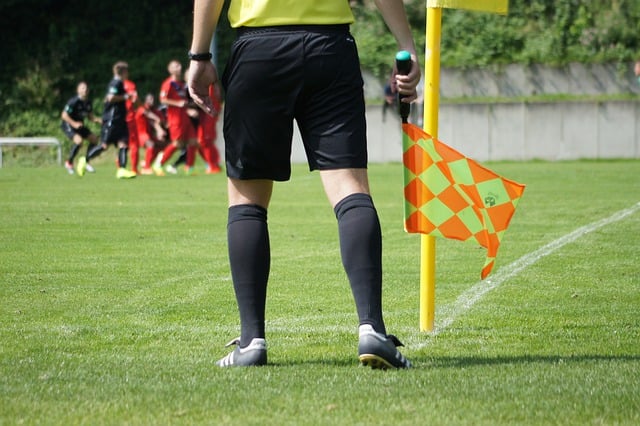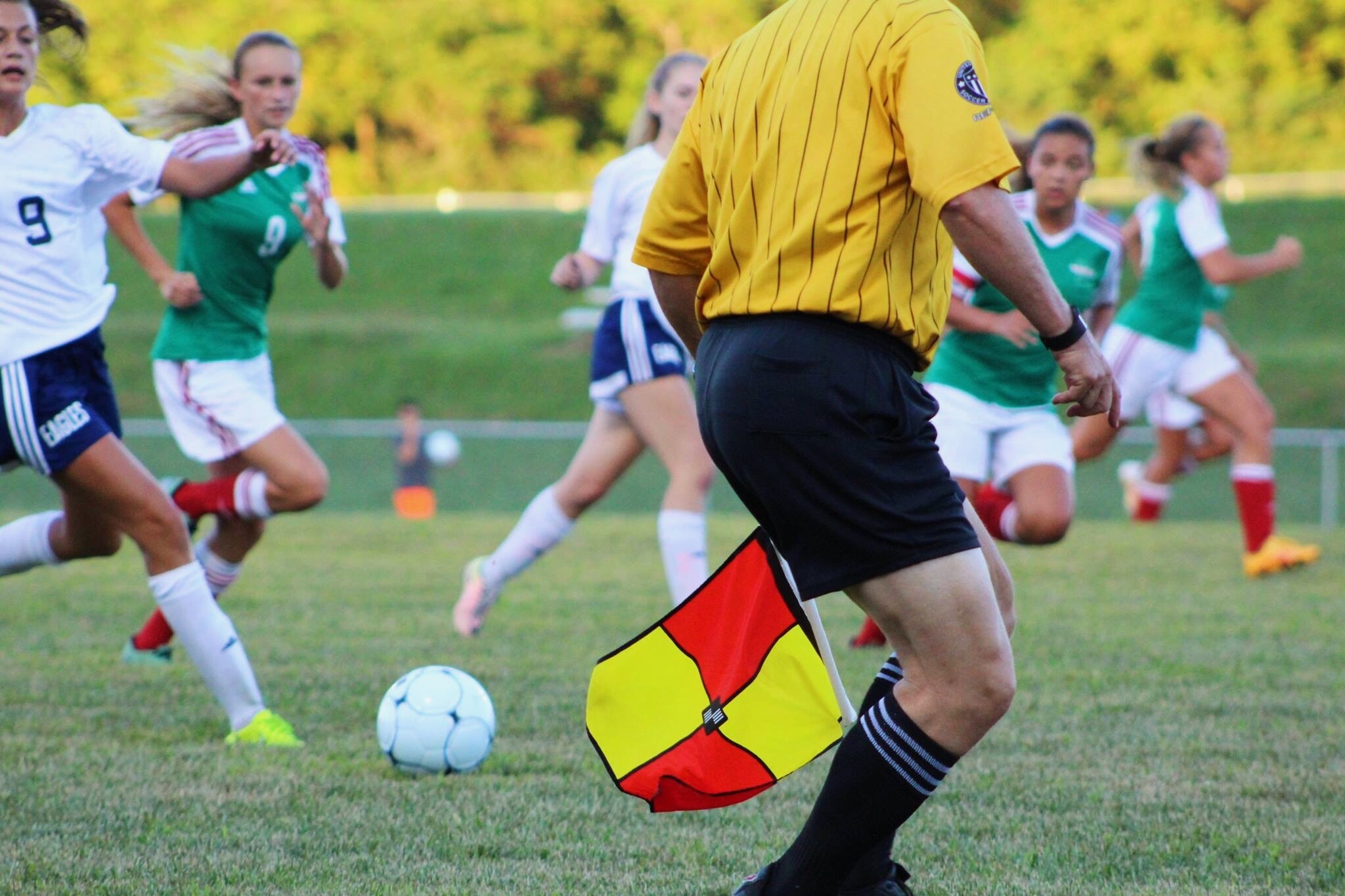So you fancy yourself a soccer aficionado and want to take your passion for the game to the next level as a referee? Well, you’ve come to the right place!
Becoming a soccer referee involves more than just knowing the rules of the game; it requires dedication, training, and a love for maintaining fairness on the field.
In this article, we’ll explore the path towards becoming a soccer referee, from the initial steps to the ongoing development and challenges that come with the role. So lace up your boots and get ready to blow that whistle, because the journey to becoming a soccer referee starts here!
Requirements for Becoming a Soccer Referee
To become a soccer referee, there are certain requirements that you need to fulfill. These requirements ensure that you have the necessary skills and knowledge to officiate matches effectively. Let’s dive into the key requirements for becoming a soccer referee.
Age Limit
The first requirement for becoming a soccer referee is to meet the minimum age limit. The age limit varies depending on the country or organization you are applying to. In most cases, you need to be at least 14 or 16 years old to become a referee. This age limit ensures that you have a good understanding of the game and are physically capable of handling the demands of officiating matches.
Physical Fitness
Physical fitness is an essential aspect of being a soccer referee. Refereeing requires stamina, agility, and quick decision-making. While you don’t need to be an Olympic athlete, being in good physical condition is important to keep up with the pace of the game and effectively position yourself on the field. As a referee, you’ll need to undergo physical fitness tests to ensure you meet the minimum fitness standards set by the respective soccer authority.
Knowledge of the Game
Having a thorough understanding of the laws and regulations of soccer is crucial for a referee. You need to know the rules, fouls, and penalties to make fair and accurate decisions during matches. To enhance your knowledge of the game, you should familiarize yourself with the official FIFA Laws of the Game. Additionally, staying updated with any modifications or changes made to the laws is equally important.
Taking the Referee Course

Once you meet the requirements, the next step to becoming a soccer referee is to take a referee course. These courses are designed to provide aspiring referees with the necessary knowledge, skills, and understanding of the game. Let’s explore the process of taking a referee course.
Find a Course
The first task in taking a referee course is to find a course near your location. Contact your local soccer association or the referee department within your country’s soccer governing body to inquire about available courses. They will be able to provide you with information on upcoming courses, schedules, and registration details.
Register for the Course
After finding a suitable referee course, you’ll need to register for it. The registration process usually involves completing an online form or submitting a registration application. Make sure to provide the required personal information accurately and follow any additional instructions given by the course organizers.
Attend the Classes
Once you have successfully registered for the course, it’s time to attend the classes. Referee courses typically consist of both theoretical and practical sessions. The theoretical sessions cover topics such as the laws of the game, positioning, and decision-making, while the practical sessions involve on-field training to practice officiating matches. Attend all the classes diligently, actively participate, and ask questions to further enhance your understanding of the game and the role of a referee.
Passing the Referee Exam
To become a certified soccer referee, you need to pass a referee exam. The exam evaluates your knowledge of the game, understanding of the rules, and ability to make accurate decisions. Let’s explore the process of preparing for and taking the referee exam.
Exam Format
The referee exam usually consists of multiple-choice questions and scenario-based questions that test your understanding of the game and your ability to apply the laws of the game to real-life situations. The exam may be conducted online or in-person, depending on the guidelines of the soccer authority conducting the exam.
Study Materials
To prepare for the referee exam, it is essential to utilize study materials provided by the course instructors or the soccer association. These materials typically include rule books, study guides, practice exams, and instructional videos. Dedicate sufficient time to study and understand the content of these materials to ensure you are well-prepared for the exam.
Taking the Exam
When you feel ready, it’s time to take the referee exam. Make sure to follow any guidelines or instructions given by the exam organizers. Read each question carefully, take your time to analyze the scenarios presented, and choose the most appropriate answer. Stay calm and confident throughout the exam. Once you have completed the exam, submit it as instructed and await the results.
Practical Training

While completing the referee course and passing the exam provide you with theoretical knowledge, practical training is equally important to develop your skills and gain hands-on experience. Let’s explore the practical training opportunities available for aspiring soccer referees.
On-Field Training
On-field training allows you to practice what you have learned in the classroom in a real-game environment. It involves officiating friendly matches, small-sided games, or youth matches under the guidance and supervision of experienced referees. This hands-on experience helps you build confidence, improve your decision-making abilities, and develop your game management skills.
Officiating Lower Level Games
Officiating lower level games is another invaluable opportunity to gain practical experience as a referee. It enables you to handle real matches with competitive elements, such as local leagues or tournaments. Starting with lower level games allows you to gradually progress and refine your skills as a referee, while still receiving feedback from more experienced officials.
Mentoring Program
Many referee associations or leagues offer mentoring programs to support and guide aspiring referees. Mentoring programs pair you with experienced referees who provide personalized guidance, feedback, and support. These mentors share their expertise, help you identify areas for improvement, and provide valuable insights to help you grow as a referee. Participating in a mentoring program can significantly enhance your development and accelerate your progress.
Getting Certified
To officiate matches at higher levels, such as competitive youth leagues or adult leagues, you need to obtain certification as a soccer referee. Let’s explore the process of getting certified.
Certification Requirements
Certification requirements vary depending on the soccer association or league. Typically, you need to fulfill specific criteria, such as completing a designated number of officiated matches, attending further educational courses or workshops, and receiving positive evaluations from more experienced referees. Check the requirements set by your local soccer governing body or referee association to ensure you meet all the necessary criteria for certification.
Background Check
As part of the certification process, a background check may be conducted to ensure the integrity and credibility of referees. Background checks are intended to identify any criminal records or previous misconduct that may affect your suitability as a referee. It is important to maintain a clean record and comply with any additional screenings required by the respective soccer authority.
Fees and Registration
Certification usually involves paying a registration fee, which covers administrative costs, membership fees, and insurance. The fee may vary depending on the level of certification and the soccer authority. Make sure to complete the registration process accurately and submit all required documents and fees within the specified deadline.
Joining a Referee Association or League

Joining a referee association or league has numerous advantages for aspiring soccer referees. It provides a platform for networking, continued education, and support. Let’s explore the benefits of joining a referee association or league.
Benefits of Joining
By joining a referee association or league, you become part of a community of referees with shared interests and goals. You gain access to resources, such as training materials, rule interpretations, and development programs. Additionally, being a member often grants you various benefits, such as insurance coverage, discounts on equipment, and opportunities to attend workshops or seminars.
Networking Opportunities
Joining a referee association or league opens doors for networking opportunities with other referees, experienced officials, and soccer professionals. Networking enables you to learn from others, share experiences, and build relationships within the soccer community. Collaborating and connecting with like-minded individuals can provide valuable guidance, career growth opportunities, and long-lasting friendships.
Continuing Education
Referee associations and leagues offer a range of continuing education opportunities to help you stay updated with the latest rules, regulations, and officiating techniques. These may include workshops, seminars, online courses, and educational materials. Actively engage in these educational opportunities to expand your knowledge, enhance your skills, and keep up with the dynamic nature of the game.
Gaining Experience
To excel as a soccer referee, gaining practical experience is crucial. Officiating matches allows you to hone your skills, build confidence, and develop your decision-making abilities. Let’s explore the importance of gaining experience as a referee.
Officiating Games
Officiating matches is the primary way to gain experience as a soccer referee. Start with lower level games, such as youth matches or local leagues, and gradually progress to higher levels. Each game brings unique challenges and opportunities for growth. Embrace every match as a learning opportunity and strive to enhance your officiating skills with each game you referee.
Feedback and Improvement
Receiving feedback is an integral part of your growth as a referee. After each match, take the time to reflect on your performance and seek feedback from experienced referees or mentors. They can provide insights into areas where you excelled and areas that need improvement. Utilize constructive criticism to refine your skills, correct any mistakes, and continually grow as a referee.
Advancing to Higher Levels
Gaining experience as a referee opens doors for advancement to higher levels of officiating. As you gain more experience, you become eligible to officiate in competitive leagues, tournaments, or even international matches. This progression requires dedication, continuous improvement, and a strong work ethic. Stay committed to your development and grasp opportunities for growth to reach new heights in your refereeing career.
Staying Up-to-Date with Rules and Regulations

Soccer rules and regulations are constantly evolving, with updates and modifications made periodically. As a referee, it is essential to stay up-to-date with these changes to ensure you are officiating matches accurately and fairly. Let’s explore some methods to stay informed about the latest rules and regulations.
Attending Workshops and Seminars
Workshops and seminars conducted by referee associations or soccer governing bodies provide an excellent platform to stay updated with the latest rules and interpretations. These sessions often feature experienced referees, instructors, or representatives from the soccer authority who share valuable insights and provide clarifications on rule changes. Take advantage of these opportunities whenever available to expand your knowledge and refine your officiating skills.
Reading Rule Books and Publications
One of the most direct ways to stay informed about the rules and regulations of soccer is by reading official rule books and publications. The FIFA Laws of the Game serve as the foundation for officiating matches worldwide. Familiarize yourself with these rule books and any supplementary guides or publications that offer detailed explanations, examples, or case studies to enhance your understanding of the laws and their application.
Interacting with Fellow Referees
Networking and interacting with fellow referees is not only beneficial for career growth but also serves as a valuable source of information on rule changes and interpretations. Engage in discussions with other referees, join referee forums or online communities, and participate in referee training sessions. Such interactions provide opportunities to exchange knowledge, share experiences, and seek clarity on any rule-related queries, ultimately enhancing your understanding of the rules and promoting uniformity in officiating.
Maintaining Fitness and Health
A soccer referee’s physical condition directly impacts their ability to perform on the field. Maintaining fitness and taking care of your health are essential for being an effective and successful referee. Let’s explore some key aspects of maintaining fitness and health as a soccer referee.
Physical Conditioning
Engaging in regular physical conditioning exercises is crucial to develop and maintain the stamina, agility, and endurance required for officiating matches. Incorporate a combination of cardiovascular exercises, strength training, and flexibility exercises into your fitness routine. Consult with a fitness professional, coach, or sports medicine expert to customize a training program that caters to the demands of refereeing.
Injury Prevention
Preventing injuries is paramount in any sports endeavor, including refereeing. Prioritize injury prevention by warming up properly before matches, incorporating dynamic stretching exercises, and using appropriate protective equipment, such as knee pads or ankle braces. Ensure you have a good understanding of match control techniques and positioning to minimize situations that could lead to collisions or injuries.
Nutrition and Hydration
Proper nutrition and hydration are essential for maintaining optimal performance and energy levels on the field. As a referee, ensure you consume a balanced diet that includes sufficient protein, carbohydrates, and healthy fats. Stay hydrated throughout the day and during matches by drinking an adequate amount of water. Avoid excessively sugary or caffeinated beverages, as they can lead to dehydration. Consult with a sports nutritionist to determine the best dietary plan for your specific needs as a referee.
Dealing with Challenges
Refereeing soccer matches can present unique challenges, ranging from difficult situations on the field to managing player and coach misconduct. Effectively handling these challenges is crucial for maintaining control and ensuring fair play. Let’s explore some strategies for dealing with common challenges faced by soccer referees.
Handling Difficult Situations
Difficult situations can arise during matches, such as player confrontations, excessive aggression, or controversial decisions. As a referee, it is essential to remain calm, composed, and maintain control of the game. Communicate clearly and assertively with the players involved, issuing appropriate warnings or disciplinary actions, if necessary. Seek support from assistant referees or the match commissioners when dealing with particularly challenging situations.
Managing Player and Coach Misconduct
Player and coach misconduct can be a challenging aspect of refereeing. It is crucial to enforce the laws of the game consistently, applying appropriate sanctions for disciplinary offenses. Be fair, impartial, and maintain a professional demeanor when managing misconduct. Effective communication and clear explanations of the decisions made can help defuse tense situations and prevent further escalation.
Communicating Effectively
Effective communication is a fundamental skill for a soccer referee. Clear and concise communication helps maintain control on the field, allows players and coaches to understand decisions, and promotes fair play. Develop your verbal and non-verbal communication techniques to ensure your instructions, explanations, and signals are understood by all participants. Good communication fosters respect and cooperation, enabling a smoother and more enjoyable match experience for everyone involved.
Conclusion
In conclusion, becoming a soccer referee requires meeting certain requirements, taking a referee course, passing an exam, and gaining practical experience. It is a journey that requires dedication, continuous learning, and a passion for the game. By fulfilling these requirements and investing time and effort into developing your skills, you can embark on a fulfilling and rewarding career as a soccer referee.


